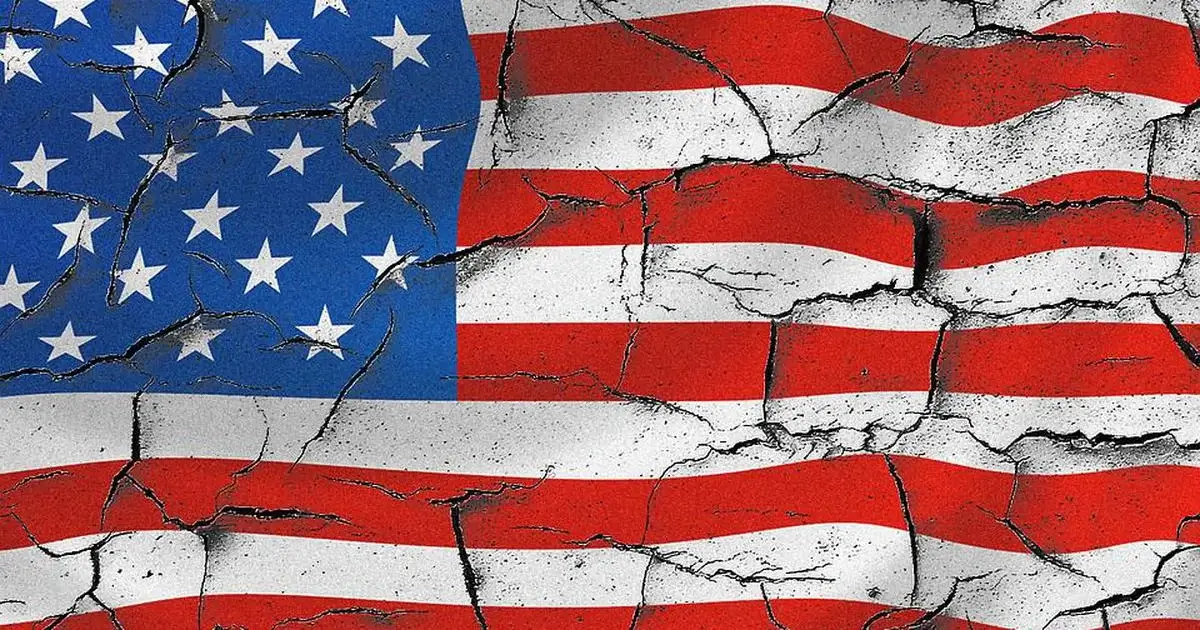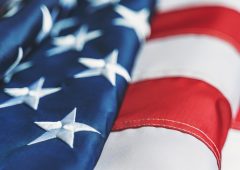US Economy Faces Potential Recession as Federal Reserve Rate Decisions Loom
09.07.2024 13:30 2 min. read Alexander Stefanov
As the US economy awaits the Federal Reserve's next interest rate decisions, historical trends hint that these policies could indicate the timing of an upcoming recession.
The analysis by Global Markets Investor on July 7 emphasized the link between the Federal Reserve’s rate hikes and the onset of recessions.
The data shows that the US is now approaching a year since the last rate hike in July 2023, and historical patterns suggest that a recession might soon follow.
RECESSION IN THE US USUALLY COMES WITHIN 18 MONTHS FROM THE LAST FED RATE HIKE:
It has been now 12 months since the last Fed hike in July 2023.
If history is any guide, the US economy should fall into a recession before the end of 2024 or is already in. pic.twitter.com/w1EJSMSH5H
— Global Markets Investor (@GlobalMktObserv) July 7, 2024
The research highlighted the typical delay between the final rate hike and the start of a recession. For example, past recessions have followed the last rate hike with delays ranging from one to 18 months. Given it has been 12 months since the most recent hike, this analysis suggests that the US might experience a recession before the end of 2024 or may already be in one.
READ MORE:

US National Debt Poses an Economic Threat
Supporting this, Alpha Oracle’s analysis on July 8 used data from the Federal Reserve Economic Data (FRED) to show that recessions often occur when rates begin to decline. This pattern suggests that the Federal Reserve usually cuts rates when an economic slowdown is perceived.
However, the current Federal Reserve appears to be waiting until the economy is on the brink of a recession before reducing rates. This cautious approach aims to balance controlling inflation and avoiding premature easing that might harm economic stability.
-
1
Billionaire Slams Meme Stock Hype and Sounds Alarm on U.S. Fiscal Health
15.06.2025 18:00 2 min. read -
2
Robert Kiyosaki Predicts 2025 “Super-Crash,” Urges Hoarding Gold, Silver, and Bitcoin
23.06.2025 13:31 2 min. read -
3
Billionaire Investor Sees Dollar Crash If Key Support Breaks
18.06.2025 15:00 1 min. read -
4
Nassim Taleb Says Global Trust Is Shifting from the Dollar to Gold
22.06.2025 17:00 1 min. read -
5
Geopolitical Shockwaves Hit Ethereum Hard While Bitcoin Stays Resilient
22.06.2025 16:21 1 min. read
Robert Kiyosaki Predicts When The Price of Silver Will Explode
Robert Kiyosaki, author of Rich Dad Poor Dad, has issued a bold prediction on silver, calling it the “best asymmetric buy” currently available.
U.S. PCE Inflation Rises for First Time Since February, Fed Rate Cut Likely Delayed
Fresh data on Personal Consumption Expenditures (PCE) — the Federal Reserve’s preferred inflation gauge — shows inflation ticked higher in May, potentially delaying the long-awaited Fed rate cut into September or later.
Trump Targets Powell as Fed Holds Rates: Who Could Replace Him?
Federal Reserve Chair Jerome Powell is once again under fire, this time facing renewed criticism from Donald Trump over the Fed’s decision to hold interest rates steady in June.
U.S. National Debt Surge Could Trigger a Major Crisis, Says Ray Dalio
Billionaire investor Ray Dalio has sounded the alarm over America’s soaring national debt, warning of a looming economic crisis if no action is taken.
-
1
Billionaire Slams Meme Stock Hype and Sounds Alarm on U.S. Fiscal Health
15.06.2025 18:00 2 min. read -
2
Robert Kiyosaki Predicts 2025 “Super-Crash,” Urges Hoarding Gold, Silver, and Bitcoin
23.06.2025 13:31 2 min. read -
3
Billionaire Investor Sees Dollar Crash If Key Support Breaks
18.06.2025 15:00 1 min. read -
4
Nassim Taleb Says Global Trust Is Shifting from the Dollar to Gold
22.06.2025 17:00 1 min. read -
5
Geopolitical Shockwaves Hit Ethereum Hard While Bitcoin Stays Resilient
22.06.2025 16:21 1 min. read

